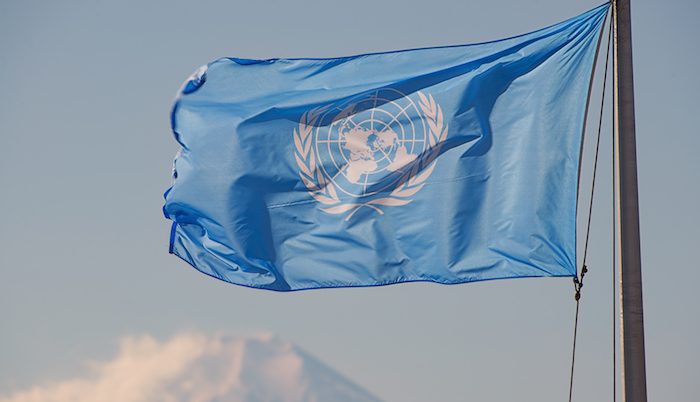
The UN: Friend or Foe of Self-determination? will be an open access edited collection published by E-International Relations (www.E-IR.info). To ensure the book has the widest possible coverage, we are opening up an invitation for contributing authors (see below). When published, the book will be available via free e-book and web versions and also sold in paperback in book stores worldwide: a model that ensures the widest dissemination and impact in the field. Find out more about E-International Relations’ books here.
About this book
The principle of self-determination found its way into international law with Articles 1 and 55 of the United Nations (UN) Charter in 1945, followed by the UN General Assembly Declaration on the Granting of independence to Colonial Countries and Peoples in 1960. With the Declaration on Principles of International Law concerning Friendly Relations in 1970, the UN General Assembly then expanded the concept of self-determination beyond decolonisation. However, the practical complications with sometimes violent effects of various interpretations of the concept have only been exacerbated by the “absence of any institutional framework or guidelines for the examination of self-determination claims under international law” (Quane 1998).[1]
Despite this legal void, the UN has continued to attempt to facilitate the self-determination processes in many cases. While there is some evidence that the UN Security Council involvement can significantly reduce the possibility of “self-determination movements from turning violent” (Beardsley, Cunningham and White 2015),[2] there is no comprehensive evidence characterising the general role of UN actions in upholding the principle of self-determination. The record varies from promises to facilitate a self-determination vote in Western Sahara to final success after massive failures in East Timor. The question therefore remains, whether the UN and its actions have enabled self-determination movements to succeed and to what degree or has the UN in fact generally hindered the self-determination claims contrary to its own Charter.
We seek contributions on cases of self-determination beyond decolonisation, particularly on the role of the UN and its actions. We also invite contributions about the current understanding of the principle of self-determination as well as its evolution since 1945. We do not seek to be overly prescriptive and look forward to authors taking advantage of this invitation to shape interesting chapter abstracts as they see fit. That said, we place a premium on contributions that use case studies and real-world examples and we expect this to be reflected in abstracts. More importantly, writing in an E-International Relations book requires that you adhere to our editorial mission statement which is to provide expert scholarship in a way that preferences brevity and accessibility. This remains so when discussing complex issues covering a variety of historical examples and touching upon possibly politically sensitive issues.
Abstracts
We welcome abstracts of around 350 words to Jakob.R.Avgustin@gmail.com by 10 June 2018. We will aim to respond to all abstracts within four weeks of receipt. Please enclose a short author bio with your abstract detailing your relevant publications and professional affiliations.
Your abstract should indicate, concisely, (1) exactly how you would like to appraise the role of UN in relation to the principle of self-determination and (2) how you would illustrate your characterisation with a case study and/or real-world examples.
The guide length of commissioned chapters will be 4,000 words (+/- 10%), so we will expect that you factor this length into your abstract/planning. And, please remember how much we value the use of real world examples and accessible language. The absence of those in your abstract will likely lead to us not accepting it.
The authors we commission will have a proven, or emerging, record in writing about self-determination and/or the United Nations from an academic or practitioner background (or both). PhD students and postdocs are welcome as part of E-IR’s mission to support emerging scholars.
Notes
[1] Quane, Helen. 1998. The United Nations and the Evolving Right to Self-Determination. In The International and Comparative Law Quarterly, 47(3): 537-72.
[2] Beardsley, Kevin, David E. Cunningham and Peter B. White. 2015. Resolving Civil Wars before They Start: The UN Security Council and Conflict Prevention in Self-Determination Disputes. In British Journal of Political Science, 47(3): 675-97.
Further Reading on E-International Relations
- Call for Contributors – Decolonizing Politics and Theories from the Abya Yala
- Review – Profit over Peace in Western Sahara
- Review – Debating Humanitarian Intervention: Should We Try to Save Strangers?
- Interview – Kentaro Fujikawa
- Interview – Stephen Zunes
- Review – James Ker-Lindsay’s YouTube Channel